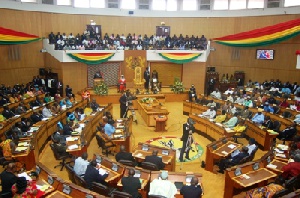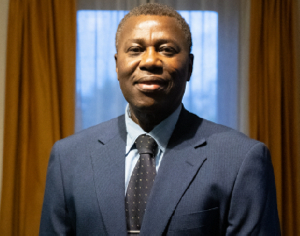Member of Parliament for Tano North, Mrs Freda Prempeh says a “Legislative Quota Seat”-a system that allocates specific percentage of parliamentary seats to women, is urgently required in Ghana’s electoral laws to consolidate the country’s fledgling democracy.
Mrs Prempeh stated that women participation in politics continues to dwindle though they represent about 52 percent of the national population.
She also called on Parliament to expedite action on the passage of the Affirmative Action Bill, which she noted would help create an enabling environment for gender equality and women empowerment in decision-making processes.
Mrs Prempeh pointed out that women’s participation in Politics and the important roles they played in the development of the nations had not been adequately recognized by successive governments, stressing the importance to eliminate various gender stereotypes, unearth, nurture and tap the potentials of women through affirmative action.
“Decisions affecting women are taken without adequate inputs from them”, the MP stated, explaining that women empowerment required a comprehensive multi-sectoral approach, with emphasis on increased participation and representation of women in decision-making at all levels.
Mrs Prempeh reiterated that the key role of political parties in identifying, grooming and enhancing women’s participation in the decision-making process was very paramount, and challenged government to make considerable efforts in incorporating gender issues into its policies and programmes.
Progress in women, the MP stressed, is progress for all, and therefore, recommended that all measures for enhanced education, health and employment ought to be put in place for women empowerment.
Mrs Prempeh advised women not to allow themselves to be bogged down by cultural, ethnic and religious impediments, but to re-orient their minds and aspire higher, especially in the area of partisan politics.
She noted with regret that stereotyping and the patriarchal nature of a male-dominated career interwoven with social and cultural hindrances had created timidity, low esteem and lack of self confidence among many women.
Mrs Prempeh emphasised that it was the responsibility of men to encourage and support their wives to go into active politics so that women participation in decision-making processes would be enhanced.
Politics of Monday, 24 March 2014
Source: GNA













